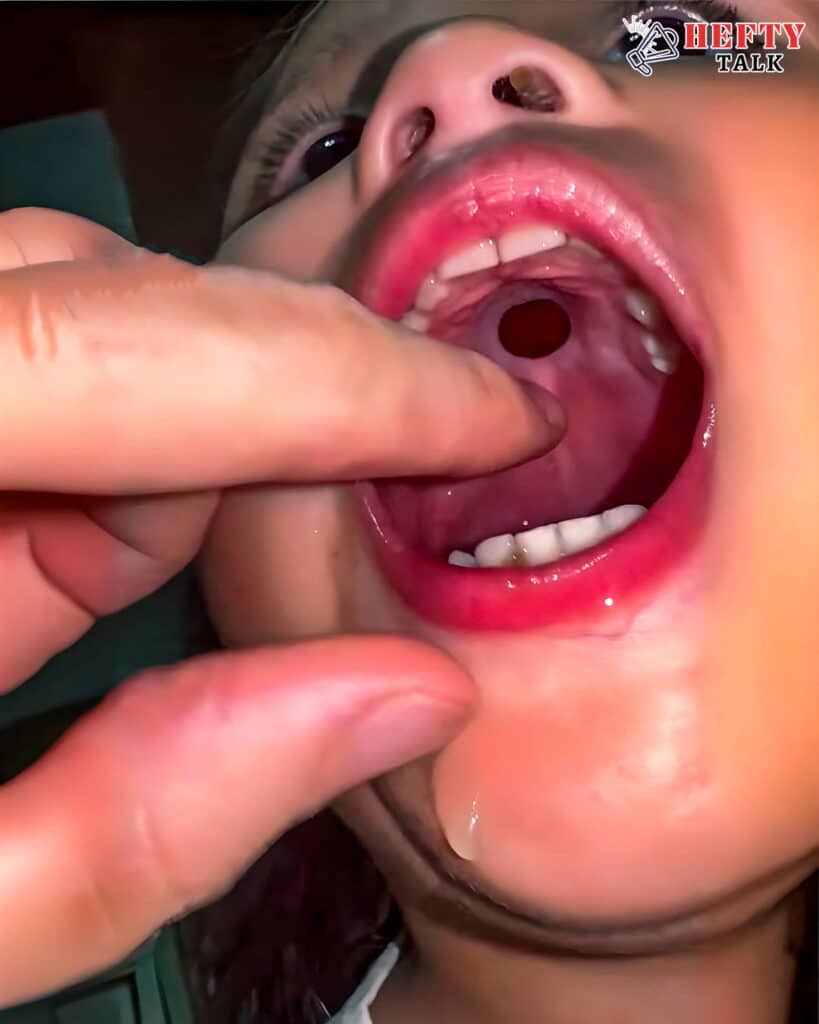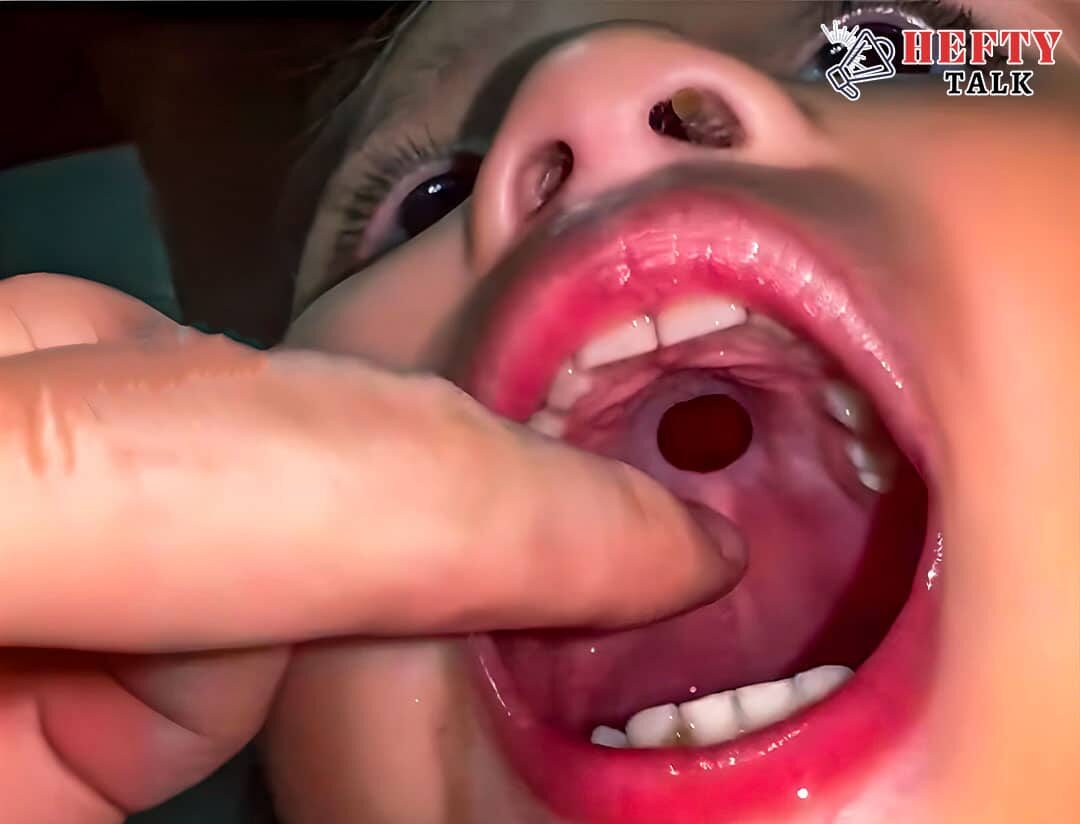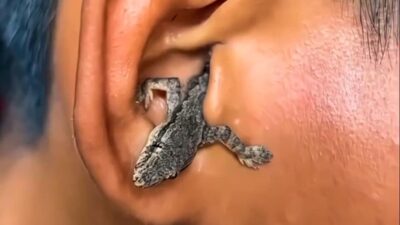My 6-year-old boy was playing outside our home when he suddenly rushed in, complaining that his mouth felt itchy. At first, I thought it might be something minor—a small cut, or maybe he’d eaten something irritating. However, the situation took a dramatic turn when he couldn’t sleep all night due to the discomfort. By morning, he was crying in pain. When I finally convinced him to let me take a closer look, I was horrified to find a small hole at the upper side of his mouth. Panic set in as I realized I had no idea what to do. This was no ordinary case of mouth pain.
The Itching That Wouldn’t Stop
The day started like any other. My son played outside, laughing and chasing his friends. Later that evening, he complained about an itching sensation in his mouth. I brushed it off, assuming it was nothing serious. He’d been chewing gum earlier, so I thought perhaps it had irritated his gums. Little did I know, this was the beginning of an ordeal.

By bedtime, his itching turned into full-blown discomfort. He kept tossing and turning, waking up multiple times to complain. The words “my mouth hurts” echoed through the night. It was unsettling, but I thought it could wait until morning. How wrong I was.
Morning Pain and a Shocking Discovery
When dawn broke, my son was in tears. His once mild irritation had escalated into sharp, unbearable pain. I asked him to open his mouth so I could take a look. What I saw made my stomach drop: a distinct, small hole at the roof of his mouth. It wasn’t bleeding, but it looked unnatural and alarming.
At that moment, a million questions ran through my mind. What could have caused this? Was it an infection? An injury? My instincts screamed that we needed medical attention, but I also felt a pang of guilt for not acting sooner.
Seeking Answers from the Experts
Without wasting another moment, I called our family dentist and explained the situation. They squeezed us in for an emergency appointment that morning. The drive to the clinic felt like an eternity as my son clutched his mouth, tears streaming down his cheeks.

When we arrived, the dentist examined him carefully. They looked puzzled but reassured me they’d do everything possible to find out what was wrong. X-rays and scans followed, revealing something I never expected: a foreign object embedded in the roof of his mouth. It was causing the hole and all the pain.
The Shocking Culprit
After removing the object, the dentist showed it to me. It was a tiny, sharp piece of wood, likely from a stick. My son must have accidentally injured himself while playing outside. The piece had gone unnoticed until it started causing irritation and infection. The dentist cleaned the wound thoroughly and prescribed antibiotics to prevent further complications.
I was relieved that we had found the cause of his mystery mouth pain, but I also felt a wave of guilt. How could I not have noticed earlier? As a parent, it’s easy to question yourself in moments like these.

Lessons Learned and Moving Forward
This experience taught me a lot about being more attentive to subtle signs of discomfort in children. What seemed like a minor irritation quickly escalated into something much more serious. I also learned the importance of immediate medical attention when dealing with unexplained mouth pain or other unusual symptoms.
Now, I make it a point to check in with my son if he complains about even the smallest issues. I’ve also started teaching him the importance of letting me know if something feels off. Prevention and early detection can make all the difference.
Signs Parents Should Watch For
If your child ever complains of mouth pain, here are some signs that it may need urgent attention:
- Persistent itching or discomfort.
- Swelling or redness inside the mouth.
- Visible injuries or unusual spots, like holes.
- Difficulty eating or speaking due to pain.
- Fever or signs of infection.

Don’t hesitate to consult a medical professional if you notice any of these symptoms. Trust your instincts as a parent.
Final Thoughts
My son’s mysterious mouth pain turned out to be a wake-up call for me as a parent. It reminded me of the importance of staying vigilant and acting quickly. Children might not always articulate their discomfort clearly, so it’s up to us to piece together the puzzle.
Have you ever experienced something similar with your child? How did you handle it? Share your thoughts in the comments. Your stories might help other parents who find themselves in unexpected situations like this.




